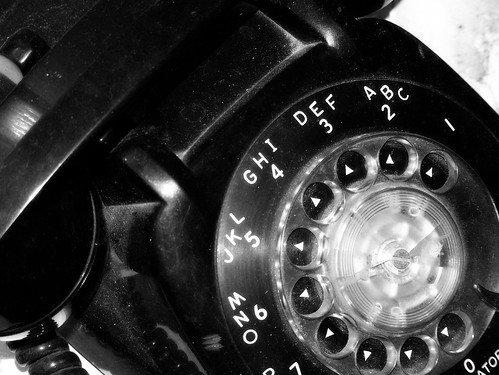Up front, I should say: I am not a great networker. Not yet. This goes back a long way, but the short version is: Sometime around the 6th grade, I realized that I was terrifyingly shy. Calling a friend to ask, “Hey, you wanna play basketball up at school?” was a Herculean ordeal. I remember riding the bus to school and hoping that it’d be late. It wasn’t that I wanted to miss class; I was more afraid of standing around before school with my own friends and trying to contribute to the conversation.
I was really, really shy, and people who know me now find it tough to believe that Dan Oshinsky — the guy who won’t shut up, the guy who won’t use four words where forty will do — was once quiet.
I eventually grew out of my shyness. I learned how to talk to people on the phone. I learned how to shake somebody’s hand and look them in the eye. I learned how to hide my awkwardness in awkward situations.
And the networking skills are coming along. But I’m discovering here at Missouri that the young j-schoolers on campus aren’t master networkers yet. In fact, some of them are rather worried about their networking skills.
They’re convinced that networking is some special skill that some people have and some people don’t. And they’re worried that they don’t have it.
That’s just not true. Everyone can be a great networker. Here’s the problem: Nobody’s ever given these students permission to be great networkers. And they’ve been waiting for permission.
So here’s what I know, guys. It’s four simple steps. Here’s your permission:
1. Show up.
Yes, this is a ‘duh’ kind of thing to say. But here at Mizzou, there are infinite networking opportunities: Meetups, speeches, brown bag lunches, even office hours. The first step is showing up.
The dirty secret is, most students don’t take advantage of opportunities like these. And they’re missing out.
Showing up is half the battle, the idiom goes. It was also, as Aaron Sorkin once wrote, Napoleon’s battle plan:
Casey: Technically, I have a plan.
Dan: What’s the plan?
Casey: It’s Napoleon’s plan.
Dan: Who’s Napoleon?
Casey: A 19th century French emperor.
Dan: You’re cracking wise with me now?
Casey: Yes.
Dan: Thanks.
Casey: He had a two-part plan.
Dan: What was it?
Casey: First we show up, then we see what happens.
Dan: That was his plan?
Casey: Yeah.
Dan: Against the Russian army?
Casey: Yeah.
Dan: First we show up, then we see what happens.
Casey: Yeah.
Dan: Almost hard to believe he lost.
And yeah, it didn’t work for Napoleon. But he was trying to defeat the Russians.
You’re just trying to make some new contacts in the journalism world.
So show up.
2. Get business cards. Get numbers. Hustle.
If you’re at a busy event — say, a conference — you might get a lot of cards. So on the back of a card, write down something about the person. Something you want to remember about him/her, something you want to follow up on.
And if you’re not comfortable with business cards, use a cool mobile tool like Bump to exchange contact information.
3. Follow up. Buy them coffee. Lunch. No one turns down free food.
I’m not kidding. If a student emails me and asks if they can buy me coffee, I will say yes. If they offer to buy me lunch, I will say yes. I will cancel important meetings and say yes. I have a journalism degree, and people with journalism degrees will do almost anything for free food.
Want access to smart, powerful people? Ask to buy them coffee. Ask to buy them lunch.
They will say yes.
(And here’s a take from an experienced networker: If they’re really busy, offer to bring coffee to their office.)
4. Keep following up.
Send your contacts links. Friend them on Facebook and like their posts from time to time. Tweet at them every few weeks. It doesn’t have to be often. A little thing every so often is just enough to keep you top of mind.
Modern relationships are built one click at a time.
Start clicking.

